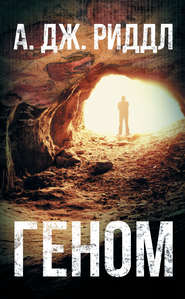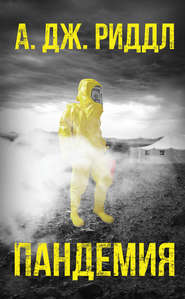По всем вопросам обращайтесь на: info@litportal.ru
(©) 2003-2025.
✖
Departure
Автор
Год написания книги
2019
Настройки чтения
Размер шрифта
Высота строк
Поля
There’s some grumbling but no real pushback. After all, I just punched some random guy in the face, seemingly apropos of nothing.
Behind me, Jillian is struggling up the chute with the help of two guys. It seems a waste to build a stairway when we’ll be rescued soon, but someone’s likely to get hurt if we don’t. I walk over and talk with the three of them about what we might use, everything from luggage to the serving carts. We agree that that will be the next priority, after breakfast is served.
What next? The mob is still here, massed like concertgoers waiting for the show to start. We need real help. Rescue.
“Does anyone here have a working cell phone?” I ask.
Voices around the crowd call out.
No, no service.
Battery’s dead.
Been trying all night, nothing.
Nobody has, I’ve been asking.
That’s odd. No, it’s unbelievable. Out of two hundred passengers who crash-land in England, no one has a cell signal? Something’s wrong.
The crowd seems to be thinking the same thing. A man wearing a tweed blazer over a Doctor Who T-shirt and jeans steps out of the crowd. “It’s obvious what’s happened, isn’t it?” He pauses, waiting for the group’s attention. “It’s started—the Third World War. They’ve taken out our communications, all electronics. The invasion’s begun, that’s why they’re not bothering with us lot. They’ve got bigger problems than rescuing us at the moment.”
Groans erupt, as well as murmurs of concern. A short, bald man wearing a black sweater and tiny round glasses takes up the dissenting position, speaking with that Down East Maine accent, slowly, deliberately, like a professor dressing down his least-favorite student. “That, sir, is far-fetched to the point of absurdity.”
“Is it now?” the Doctor Who fan retorts. “What do you know about it?”
“A great deal, actually. I used to work for Northrop Grumman.”
“Oh yeah? Big whoop.”
“If this were World War Three, we’d be hearing explosions. Planes would be flying overhead. We’d probably hear tanks and troop carriers in the distance. Anyway, I doubt World War Three would start in England.”
“Maybe they’re saving England for last. It’s the perfect launching place for an invasion of Continental Europe—history’s proved that.”
“It is,” Northrop Grumman guy counters. “And that’s precisely why nobody’s conquered it in almost a thousand years.”
“Well, maybe it isn’t that kind of war. Your lot always assumes the next war will be just like the last, tanks and planes right up to the end, but it’s the technology that’s the real key. They’ve taken us back to the Stone Age. They’ll wait us out, let us start starving before they invade. They probably got us with a series of EMPs. That explains the crash—the phones, too.”
“It does not, sir,” Northrop Grumman drawls condescendingly. “An EMP wouldn’t have fried our cell phones, but it would have knocked out larger electronics. I just saw a man on the plane with a working laptop.”
A middle-aged woman in an NYU sweatshirt speaks up. “The Internet went out during the flight. I was reading e-mail. That was at least an hour before we crashed.”
“True,” says a tall man beside her.
“Maybe it’s just a problem with the satellites.”
Northrop Grumman turns to the NYU woman. “A satellite failure could have contributed to the crash, true, but it doesn’t explain the cell phones. They connect to land-based towers—well, except for sat phones. The one thing we can conclude is that all land-based towers in the area must be down.”
“Or there aren’t any,” Doctor Who says. “Maybe we’re not in England at all.”
That, I find interesting.
NYU speaks up again. “The little readout showed the plane over England—I saw it.”
“It’s possible,” Northrop Grumman says, considering, “that if the plane had a malfunction, and all external communication was lost, the readouts would have shown us on the original flight path. The plane’s position could have been calculated based only on our flight time.”
“Then we could be anywhere!” a frightened voice shouts.
“Greenland, for all we know. It’s bloody cold enough.”
“Or Iceland, or another island off the coast of England. No-man’s-land.”
“They’ll never find us.”
An elderly woman steps toward me. “What do you think, sir?”
Every eye turns to me.
“I think …” What do I think? I take a minute, finally settling on something I’d been chewing on for the last few minutes. “I think that we’re going to know a lot more once we get into the cockpit. The computers, or hopefully the pilots, can tell us where we are. And the communications equipment could help us contact help.”
It amounts to kicking the can down the road, the proverbial answer we’ve been waiting for locked just feet away, but it does the trick. The crowd mellows. As food slides down the inflated chute, the group breaks up. People get their half meals and start trooping back to the warmth of the blankets and fire by the lake.
“You won’t get into that cockpit.”
I turn to find Northrop Grumman standing bizarrely close to me.
“Why do you say that?”
“It’s reinforced. All airplane doors were, after 9/11, especially on long-haul flights. You’d have a better chance of getting into Fort Knox.”
“What about the windows?”
“Same. They can withstand about any impact, even at high speed.”
The guy’s still staring at me, almost expectantly. He’s got more to say. Heck, I’ll bite. “What do you suggest?”
He moves even closer, almost whispering. “You can’t get in, but if someone is alive inside, they can get out—that’s our only hope. It’s only been twelve hours. Maybe one of the pilots was just knocked unconscious. If we could wake them up, they could unlock the door.”
“Makes sense. So we’ll make some noise.”
“Exactly. Now, this is important, Mr. …”
“Stone. Nick Stone.” I extend my hand, and he shakes quickly.
“Bob Ward. Now we need to make sure we—or someone we trust—are the ones who get into that cockpit first.”
Someone we trust. My mind flashes to the three guys that followed me onto the plane last night—and to Harper. I can’t help wondering how she’s doing. Dread fills the pit of my stomach.
“Why?” I ask, trying to focus on the issue at hand.














